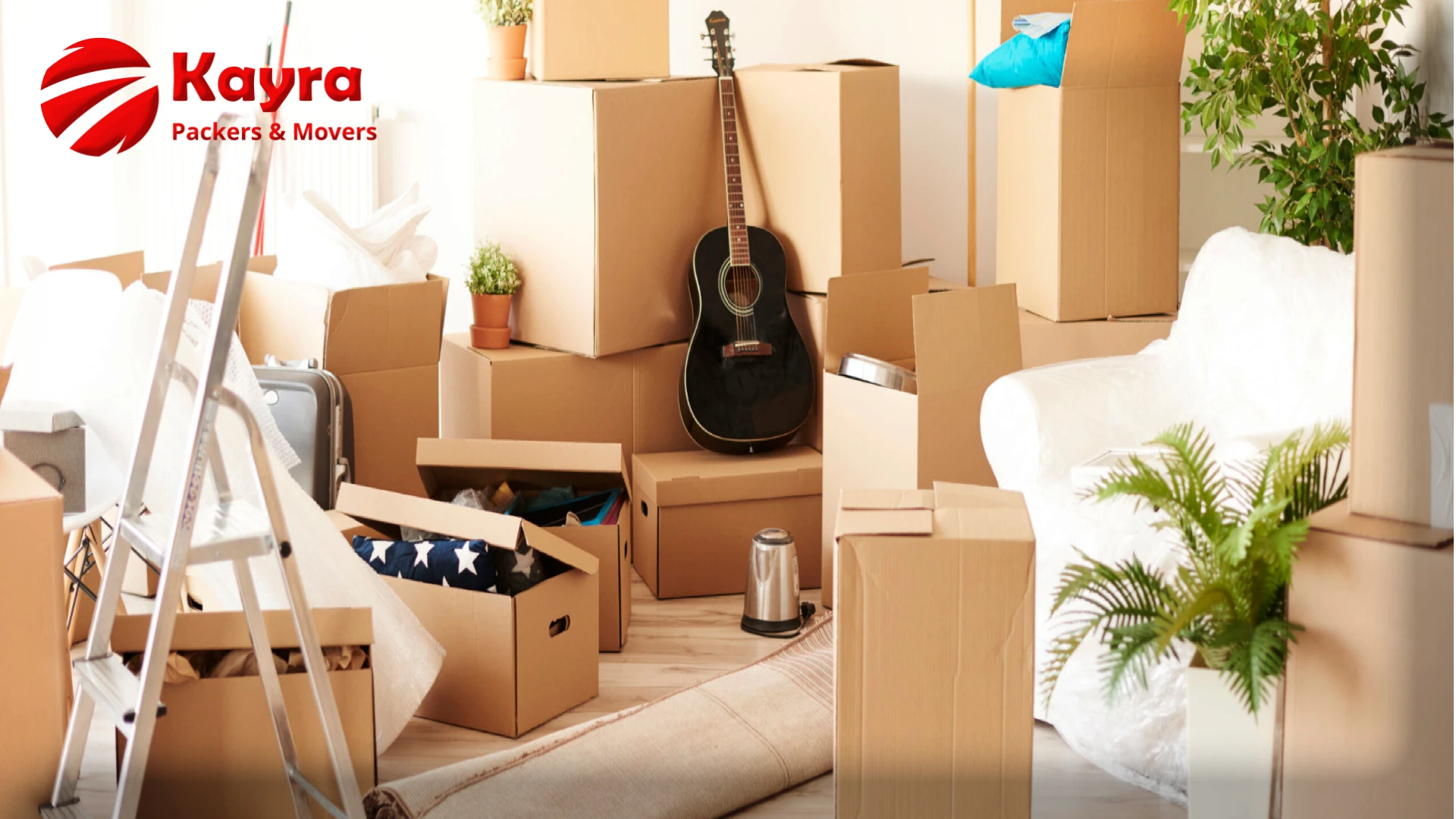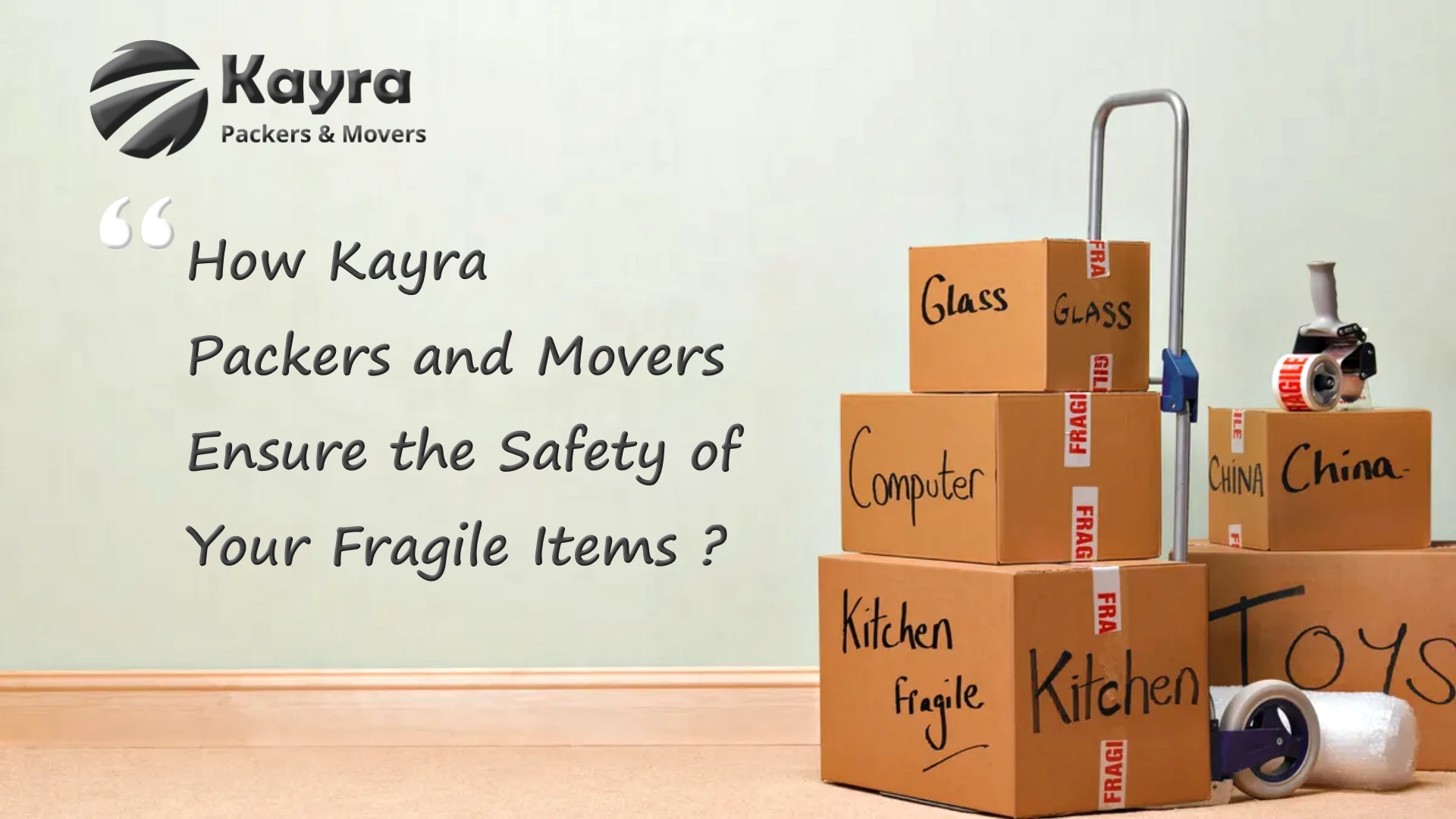Moving can be a daunting experience, especially when it comes to fragile items. Whether it’s your expensive glassware, delicate electronics, or cherished antiques, ensuring the safety of fragile belongings during a move is critical. Professional packers and movers understand this concern and have developed a variety of strategies and techniques to ensure the safe transportation of your fragile items.
In this article, we will explore how packers and movers ensure the safety of your delicate belongings, the techniques they use, and the best practices to minimize risks.
1. Using High-Quality Packing Materials
The safety of fragile items begins with the type of packing materials used. Packers and movers utilize high-quality packing supplies designed to provide maximum protection during transportation. Some of the most commonly used materials include:
Bubble Wrap
Bubble wrap is a versatile packing material used to cushion fragile items. It creates a protective layer that absorbs shocks and prevents breakage. Packers wrap each fragile item in multiple layers of bubble wrap to ensure it stays secure during transit.
Packing Paper
Packing paper is used to fill voids in boxes, preventing items from shifting during the move. It also helps protect delicate surfaces like glass and ceramics from scratches.
Foam and Cushioning Materials
Foam inserts and cushions are often used for larger, fragile items like electronics, artwork, or mirrors. These materials provide excellent shock absorption and protect items from vibrations or impacts.
Sturdy Boxes
Instead of using any regular cardboard box, professional packers and movers rely on sturdy, double-walled boxes that can withstand the weight and prevent collapse during transportation. These boxes are often available in a variety of sizes to fit different types of fragile items.
Specialty Packing Materials
For particularly delicate items like fine china, electronics, or sculptures, specialty packing materials such as custom foam padding, corrugated sheets, or even wooden crates may be used. These offer an additional layer of protection.
2. Custom Packing Techniques
Beyond using the right materials, professional packers and movers employ custom packing techniques specifically designed for fragile items. This approach ensures that each item is packed in a way that minimizes risks and maximizes safety.
Wrapping Items Individually
Every fragile item is wrapped individually to avoid contact with other items that might cause scratches or damage. For instance, each plate in a set is wrapped separately in bubble wrap or packing paper.
Layered Packing
Layered packing involves placing heavier, sturdier items at the bottom of the box and more fragile, lighter items at the top. Packers often add cushioning between layers to provide extra protection and reduce movement within the box.
Double Boxing Fragile Items
For extremely delicate items such as glassware, antiques, or electronics, packers often use a double-boxing technique. The item is first packed in a small box, and then that box is placed into a larger, well-padded box. This extra layer of protection can safeguard fragile items from drops or impacts.
Labeling Fragile Boxes
Professional movers take care to label every box containing fragile items with “Fragile” or “Handle with Care.” This ensures that everyone involved in the move understands the importance of handling these boxes carefully.
3. Safe Loading and Unloading Practices
Even with proper packing, the way fragile items are loaded and unloaded from the moving truck plays a crucial role in ensuring their safety. Packers and movers follow specific loading and unloading protocols designed to prevent damage.
Securing Items in the Truck
Once all items are loaded, movers ensure that boxes containing fragile items are securely fastened inside the truck to prevent them from shifting during transit. They use straps, ropes, and other securing mechanisms to hold items in place, reducing the risk of jostling or falling over during transport.
Proper Placement in the Truck
Fragile items are always placed on top of heavier, sturdier boxes. Professional movers avoid stacking heavy objects on fragile boxes, which could cause crushing. Additionally, fragile items are often placed in specific sections of the truck where they are less likely to be impacted by sudden movements or turns.
Careful Handling During Loading and Unloading
Experienced movers are trained to handle fragile items with care during the loading and unloading process. They lift, carry, and place items gently to avoid drops or mishandling. The use of proper equipment, like dollies and hand trucks, helps make the process smoother and safer.
4. Transport Insurance for Added Protection
Despite taking all precautions, unforeseen circumstances can occur during a move. To provide additional peace of mind, many packers and movers offer transport insurance to cover any potential damage to your belongings during the move.
Comprehensive Insurance Options
Movers typically offer different types of insurance coverage, ranging from basic liability to full replacement coverage. Basic liability insurance covers a limited amount based on the weight of the items, while full replacement value insurance covers the total cost of repairing or replacing damaged items. Having this protection ensures that, in the rare event of damage, you can be compensated.
Claims Process
In the event that an item is damaged, reputable movers have a straightforward claims process in place. They will inspect the damage, and if your claim is valid, they will work with you to either repair the item or reimburse you for the loss. This helps you feel secure knowing that your items are protected throughout the moving process.
5. Special Handling for High-Value or Unique Items
Some fragile items, such as fine art, antiques, or custom-built furniture, require special handling due to their high value or unique nature. Packers and movers have the expertise to manage these types of items with additional care and precision.
Fine Art and Antiques
Movers use custom crates, padded containers, and foam inserts for fine art and antique pieces to ensure they are not damaged in transit. Special precautions are taken to avoid direct exposure to moisture, heat, or cold, which could potentially damage sensitive materials.
Electronics
For high-value electronics like computers, televisions, and home theater systems, movers use anti-static wraps and cushioned packaging to prevent damage from both physical impact and static electricity. These items are securely fastened inside the truck to prevent movement.
Customized Solutions
For particularly unique or fragile items, movers can offer customized packing solutions. This may include creating custom-sized crates, using reinforced packing materials, or employing specific packing techniques to ensure the safety of the item.
6. Storage Options for Fragile Items
In some cases, you may need to store your fragile items temporarily during a move. Packers and movers provide safe, climate-controlled storage facilities where your fragile items can be securely stored until they are ready for delivery.
Climate-Controlled Storage
For fragile items that are sensitive to temperature and humidity, such as artwork or wooden furniture, movers offer climate-controlled storage units. These facilities maintain optimal conditions to prevent damage from environmental factors.
Secure Storage Units
Movers also provide secure storage units equipped with surveillance and security systems to protect your belongings from theft or damage. This added layer of security gives you peace of mind, knowing your fragile items are safe while in storage.
Conclusion
Ensuring the safety of your fragile items during a move requires careful planning, the use of high-quality materials, and proper handling techniques. Professional packers and movers have the expertise to pack, transport, and deliver fragile items with minimal risk of damage. By utilizing customized packing strategies, secure transport methods, and offering insurance coverage, movers make sure your delicate belongings arrive at their destination safely.
When choosing a moving company, look for one with a proven track record of handling fragile items and offering comprehensive insurance options. This ensures you get the best possible protection for your valuable possessions during the entire moving process.


